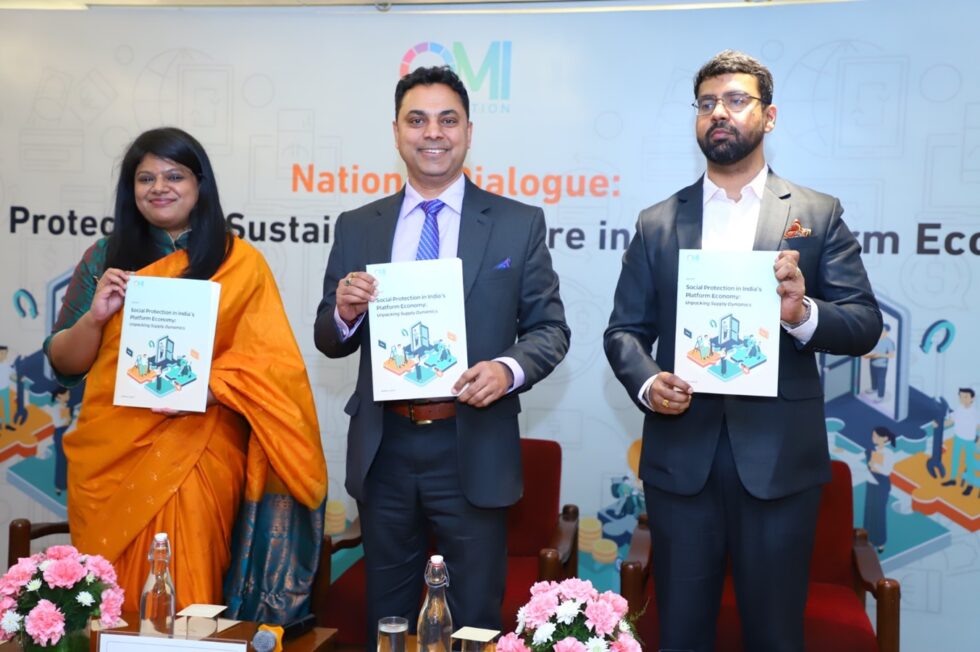
NEW DELHI:
Prof. Krishnamurthy V. Subramanian, Executive Director, International Monetary Fund, and 17th Chief Economic Adviser (2018-21), Government of India, today unveiled OMI Foundation’s report, ‘Social Protection in India’s Platform Economy: Unpacking Supply Dynamics’. This pioneering report culminating from a 10-month-long study, meticulously outlines the diverse range of social protection benefits available to platform workers in India.
Engaging with 10 prominent platforms boasting a collective FY 2023 revenue exceeding INR 56.4 thousand crore and serving over 45.5 lakh platform workers, the report offers a comprehensive understanding of the landscape. Furthermore, insights from interviews with two workforce providers and two government bodies overseeing worker welfare, operating under the Ministry of Labour and Employment, Government of India, have enriched the study.
The report was released at the conference, National Dialogue: Social Protection & Sustainable Welfare in Platform Economy. The event was graced by policymakers, social protection experts, multilateral organisations, worker’s representatives, along with the members of industry and academia who deliberated on the opportunities and challenges in establishing a sustainable social protection in India’s platform economy.
Key Highlights:
➢ Up to INR 10 lakhs accident, disability & death cover is provided by platforms to the workers. While passenger mobility platforms provide accident cover up to INR 5 lakhs. hyperlocal delivery platforms offer a cover between INR 3 and 10 lakhs.
➢ Up to INR 6 lakhs term life cover provided by home services and e-commerce platforms, especially to high-performing workers
➢ Maternity cover and paid menstrual leave are standout benefits for female workers engaged with hyperlocal delivery platforms
➢ Improved access to credit and financial inclusion products are notable benefits for workers engaged with passenger mobility and home services platforms
➢ Platforms largely fund worker social protection with optional top-up coverage upon payment of fees. Yet, non-contributory health insurance and pensions remain challenging due to the high cost and transient nature of platform work.
➢ Several platforms facilitate access to government social security schemes. However, restrictions such as wage ceiling or vehicle ownership render many workers ineligible.
➢ Preference for immediate pay and poor awareness of social protection limit uptake of various schemes and benefits among platform workers.
➢ Western social protection models are unfit for India’s workforce – 88% of whom are in the informal sector.
Acknowledging platform work as a distinct category, India is presented with an opportunity to redefine social protection paradigms.
The dignitaries at the national dialogue recognised that the platform economy is nascent yet fast-evolving. It is a promising engine of inclusive livelihood generation. Establishing a sustainable social protection infrastructure necessitates recognising the heterogeneity of business, revenue, and worker engagement models. This requires a coordinated effort between central and state governments with shared responsibilities from industry and workers. The Code on Social Security, 2020 (CoSS 2020) also endorses shared responsibility for social protection.




